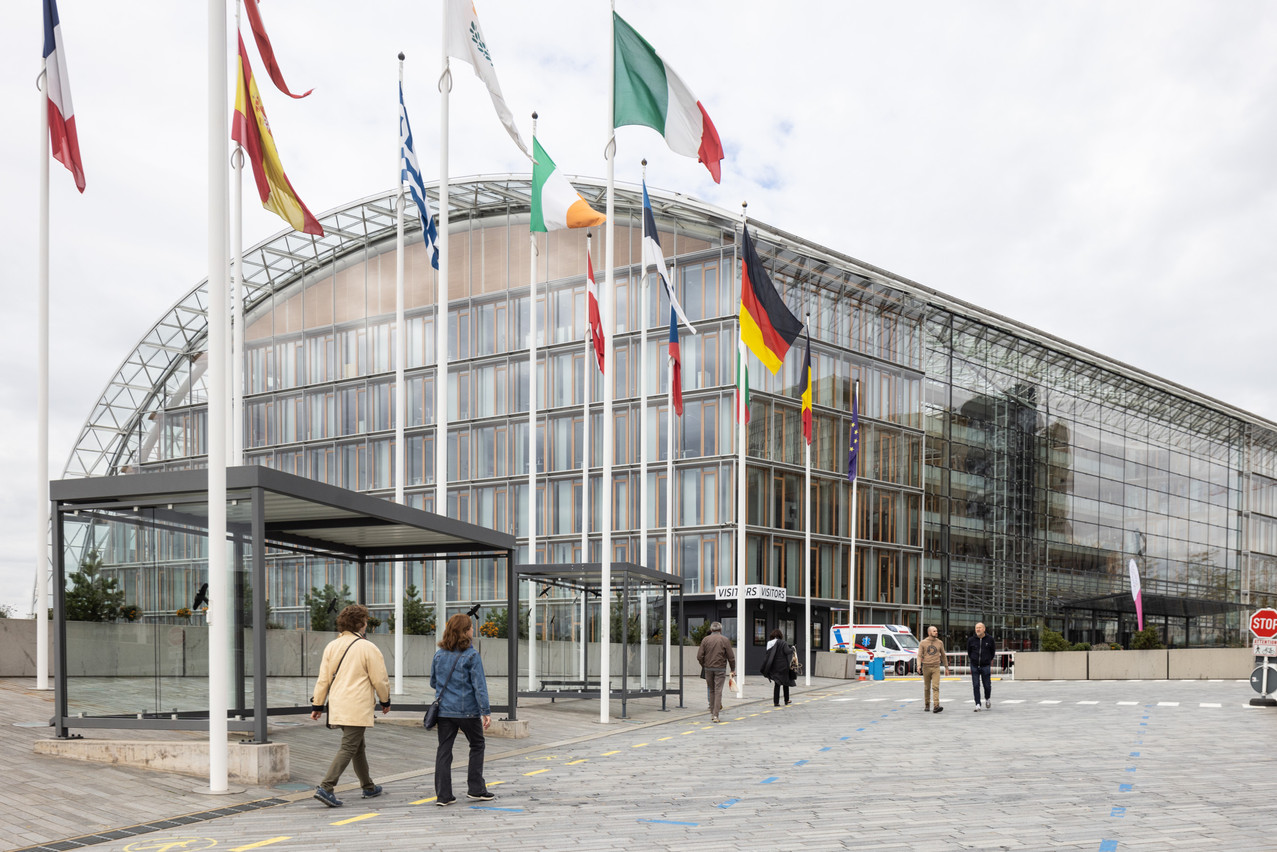The has--in part--been heard. Management has decided to increase their income by an average of 7% in 2023 to compensate for their non-indexation. It will be visible on their April pay slips, with retroactivity to 1 January. This, however, does not correspond to the requested index.
As a reminder, the European institution considers that its staff are not subject to the automatic adjustment of their income to the cost of living, to which other employees and civil servants in Luxembourg are entitled. This is why they protested last October.
Increases mainly linked to performance
“This increase reflects the achievement of the objectives set out in the group’s operational plan, the increase in the cost of living and the impact of inflation for some 4,000 members of staff in Luxembourg, Europe and worldwide,” the EIB said. “The income of each staff member will depend on his or her performance, achievements and career progression.”
This means that a staff member who has exceeded his or her objectives, regardless of salary, could see his or her income increase by 10%. But another, far from having achieved them, could also virtually stagnate.
Officially, the average 7% is split between a 5% salary increase (linked to performance) and a 2% structural adjustment. This is a larger envelope than in previous years. It was 3.2% in 2022 (2.3% salary increase, 0.9% structural adjustment).
A new salary grid
“Salary adjustments are an annual exercise at the bank. This year, due to high inflation, it was followed much more closely by the staff, who made their views known to management and to our shareholders, the 27 Member States of the European Union,” says the EIB.
The European institution has thus published a new salary scale. The minimum is increased from €36,461.22 to €41,465.79 euros gross per year. By way of comparison, the .
The salaries of the management committee (from grade 8 upwards) are aligned with those of the European Commissioners--another injustice highlighted by the staff.
They are “not affected by the changes in staff pay,” but their salaries will increase by “6.9% in 2023.”
Hearing on 25 May
The European bank also paid individual bonuses at the beginning of the year, of €3,000 net for the lowest paid and €2,000 for the highest. The bank was not able to say at what threshold the two categories were crossed. Employees are also entitled to annual collective performance bonuses.
These gestures are not enough for some staff members, who have taken their case to the labour court. “7% are not able to maintain purchasing power,” explains one of them. They are asking for a real indexation system, to which they have not been entitled for years.
“The applicants wrongly claim that the bank should have applied indexation. However, the employment relationship between the agents and the bank is not governed by Luxembourg law but by European Union law and falls within the exclusive jurisdiction of the European Court of Justice,” the EIB said.
The answer will be given on 25 May, the date on which the hearing has been scheduled.
This story was first published in French on . It has been translated and edited for Delano.
